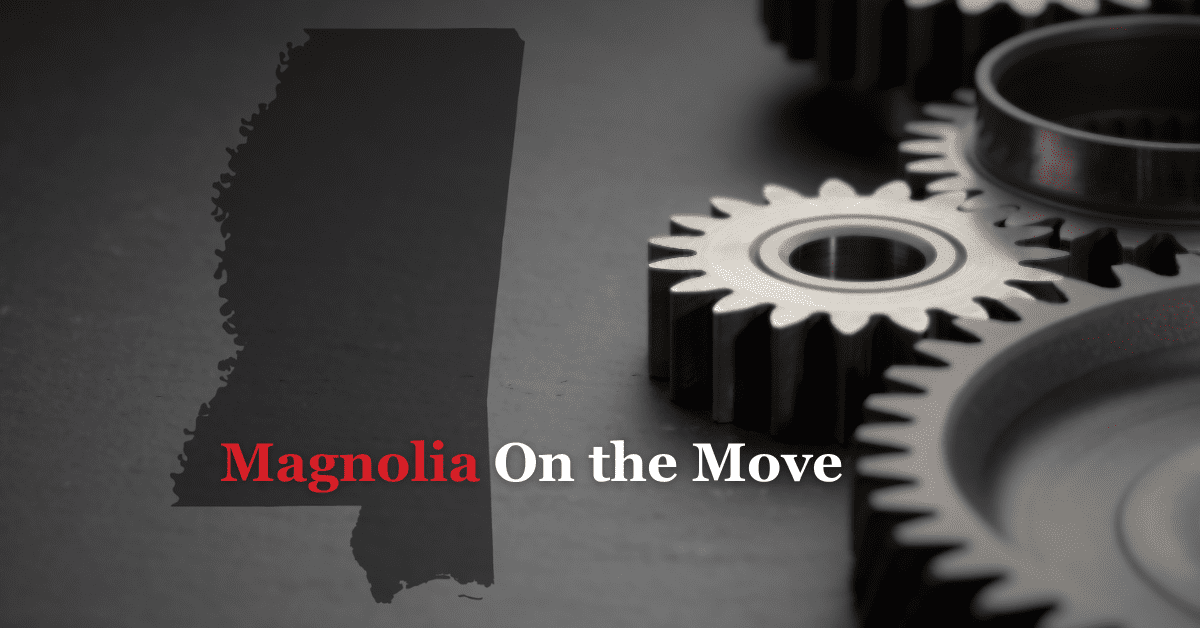
Business columnist Phil Hardwick explores the reasons companies change their names and what they might consider when adopting a new name.
In 2021, Facebook changed its name to Meta. CEO Mark Zuckerberg explained, “It is time for us to adopt a new company brand to encompass everything we do.” The rebranding was widely criticized as a name not well-known or understood, as an attempt to distract from mounting negative comments about the company, and that it was changed without a real change at the company.
It is not uncommon for businesses to change their names. Today’s fast-paced business world sometimes requires changing names to meet the new environment and to shift their focus. Reasons for name change can be legal, merger, branding, relocation, scandal, and cultural. Even government organizations sometimes change their names. For example, the Mississippi Development Authority began as the Mississippi Industrial Commission and has had several name changes over the years.
In this column, we will explore some of the reasons companies change their names and what they might consider when adopting a new name.
To illustrate examples of the name changes, let’s begin with a brief quiz. Some of the listings are Mississippi companies, while others are national or international companies.
QUIZ: Match the name of the former company(number) to its current name (letter). Answers at end of the column.
1. Anderson Consulting
2. Cellular South
3. Deposit Guaranty National Bank
4. McRae’
5. Mississippi Power & Light
6. Philip Morris
7. Smith & Wesson
8. South Mississippi Electric
9. Weight Watchers
10. The Haloid Photographic Co.
A. Cooperative Energy
B. American Outdoor Brands Corp.
C. Xerox
D. Altria
E. Entergy
F. Accenture
G. Regions
H. C Spire
I. WW
J. Belk
The following are just a few of the reasons a company might consider a name change.
BUSINESS MODEL NO LONGER REFLECTS CORE BUSINESS
Restoration Hardware began as a hardware store. If you’ve been to one of its stores lately, it has obviously (and successfully) moved to more than just that. It is now a global furniture retailer. In 2017, it changed its name to RH to reflect its current business model.
If the core business begins as a product company, such as Radio Shack, it necessitates a name change if it wants the public to see it as a larger, more diverse company. And did you know that BestBuy was once Sound of Music?
Dunkin Donuts changed its name in 2018 when it decided to increase it image beyond just coffee and emphasize its pastry offerings.
EXPANSION BEYOND LOCAL MARKET
Geographically named businesses are common name changers. It’s hard to do business in another area of the country if the company name has a city or specific region. Not only that, but it can also make the company less valuable if a larger company comes along and wants to buy or merge with the company.
One excellent Mississippi example of a company name change is South Mississippi Electric Company to Cooperative Energy. As it explained in why it changed its name, “Simply put, we outgrew our name. Over the past 75 years, South Mississippi Electric grew both in its mission and geographic areas served. We are no longer just a South Mississippi company. Today, our service area extends from the Mississippi Delta to the Gulf Coast. Cooperative Energy is a name that better defines who we are today as a company.”
BUSINESS IS NAMED AFTER A PERSON, USUALLY ITS FOUNDER
Many companies choose to name their business after their founder. This is especially common with professional services firms, such as law firms, financial companies, and architects. That can work well for a long time if the founder was Walt Disney or Enzo Ferrari. But if the founder’s name becomes unrecognizable or irrelevant it might be time to rethink the company name.
SCANDAL
Lance Armstrong Foundation changed its name to Livestrong Foundation following revelations Armstrong used performance-enhancing drugs. WorldCom, the long-distance telephone carrier, changed its name to MCI in 2003 in the middle of an accounting scandal.
CULTURAL
As society’s cultural values change, companies may find that even their name has cultural connotations. For example, many things tied to racial issues and the Confederacy are not considered acceptable. In 2020, Dixie Brewing Company in New Orleans announced it was changing its name to Faubourg Brewing Company. Faubourg – pronounced “Fo-burg” – is a French term many residents of The Big Easy use to refer to neighborhoods.
HOW TO SELECT A NEW NAME
Legalzoom recommends the following:
- Follow your state’s naming guidelines.
- Don’t pick a name that’s too similar to a competitor’s name.
- Choose a name that people can spell and pronounce.
- Make your name web-friendly.
- Be memorable but not too unique.
- Pick a name that’s consistent with your brand.
- Don’t limit yourself.
In conclusion, all the above are good reasons for a name change, but they won’t work if your business doesn’t offer a good product or service, make a profit for its owners, or does not provide good customer service. In short, if it’s not a viable business to begin with, changing its name is not going to help much. It could even invite ridicule if the wrong name is chosen.
QUIZ ANSWERS: 1-F, 2-H, 3-G, 4-J, 5-E, 6-D, 7-B, 8-A, 9-I, 10-C











